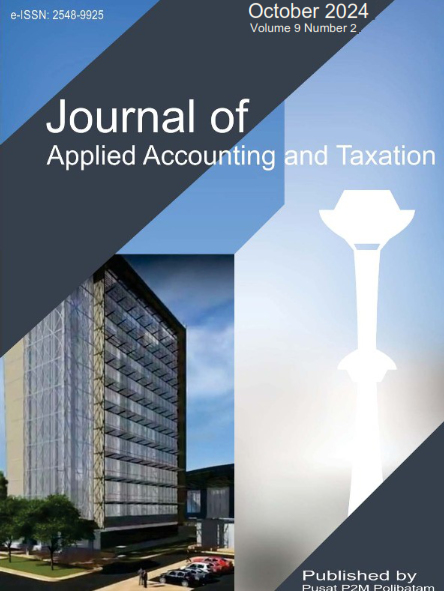The Influence of Perceived Ease of Use, Perceived Usefulness, Quality of Information Systems, and Individualism-Collectivism on the Behavioral Intention of Users of Digital Tax Education Services
DOI:
https://doi.org/10.30871/jaat.v9i2.8042Keywords:
The Technology Acceptance Model (TAM), The Information Systems Success Model (ISSM), Hofstede's cultural dimension, Digital Tax Education ServicesAbstract
This research examines the application of tax digital education services on Tax Center at Batam State Polytechnic (Polibatam). To find out the factors that influence the implementation of these services. We use theoretical models such as the Technology Acceptance Model (TAM), the Information Systems Success Model (ISSM), and Hofstede's Cultural Dimensions. This research examines perceived ease of use (PEoU), perceived usefulness (PU), information system quality (ISQ), user satisfaction (US), and cultural values of individualism and collectivism (IC) in the context of implementing new technology. Based on the responses of 103 respondents, data analysis using PLS-SEM revealed that factors such as perceived usefulness, quality of the information system, and user satisfaction when using this service were found to have a significant influence on behavioral intentions. This study provides insight into system development that aims to increase the effectiveness of online services, increase user satisfaction, and encourage sustainable technology adoption in the context of digital-based tax education services in Indonesia.
Downloads
Downloads
Published
How to Cite
Issue
Section
License
Copyright (c) 2024 NABILLA SEPTIA ARYAPUTRI, Arniati Arniati, Ria Anggraini, Dedi Kurniawan, Anjelina Anjelina, Afriyanti Hasanah, Rizki Lanniari

This work is licensed under a Creative Commons Attribution-ShareAlike 4.0 International License.











